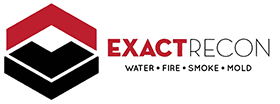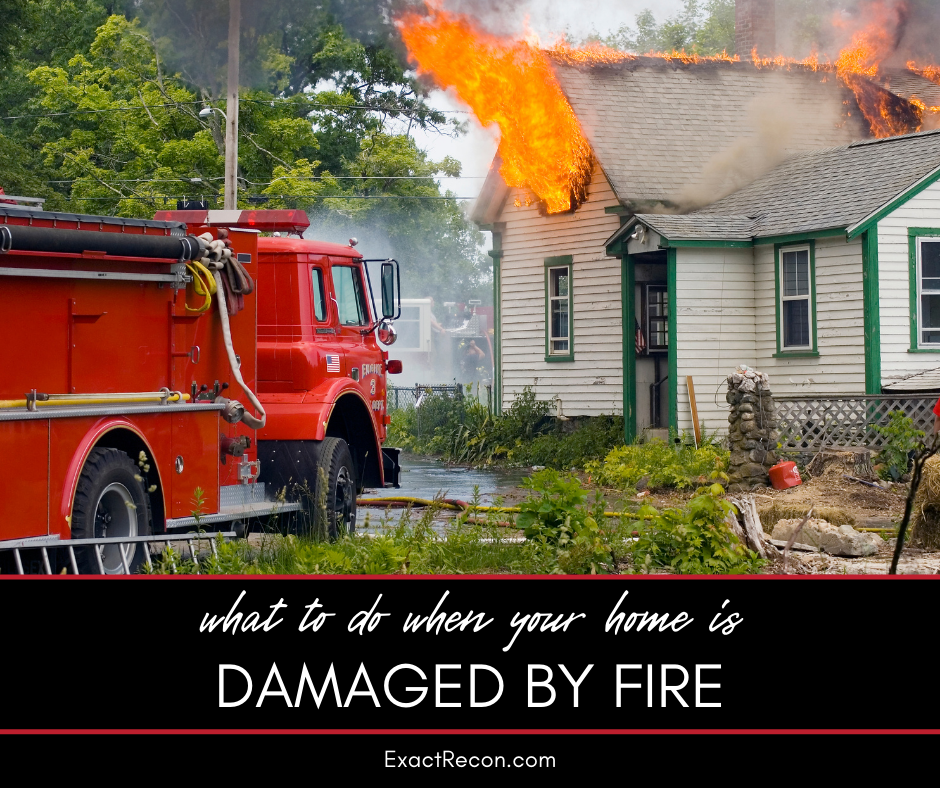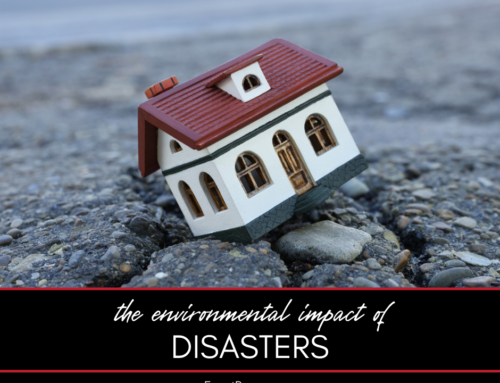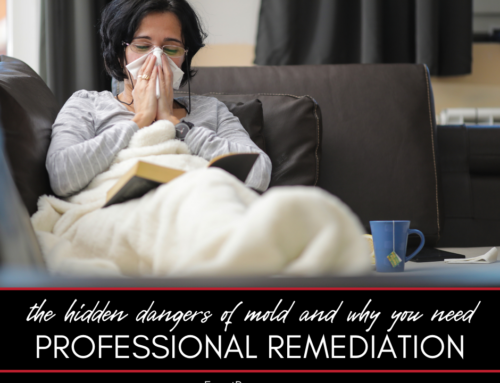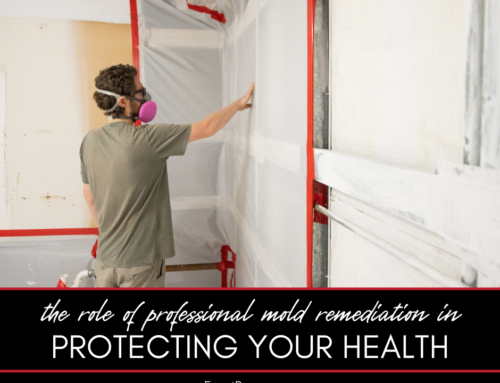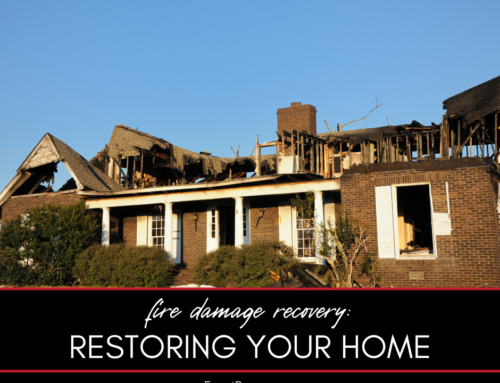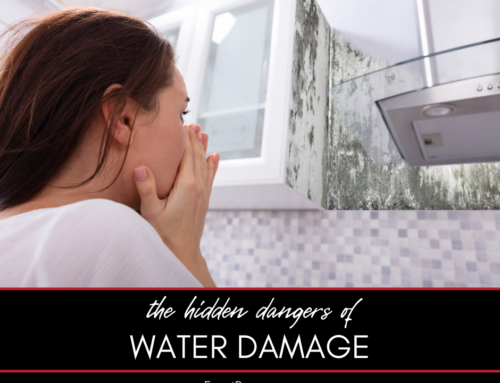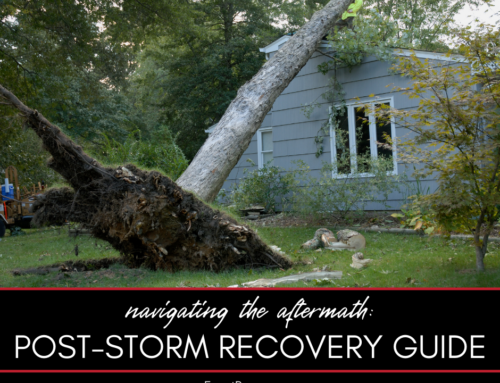Facing fire damage in your home is tough. Apart from the emotional toll, the physical damage can be extensive from the ashes, soot, and water damage left in the wake of the fire. So what are you supposed to do? This guide explains.
What to Do When Your Home is Fire Damaged
Understanding the process of recovery after a fire can help you get back on your feet faster. This guide explains the following:
- Immediate steps to take after a fire
- Dealing with insurance companies
- Cleaning and restoring your home
- Temporary housing options
- Preventing future fires
Here’s a closer look at each.
Immediate Steps to Take After a Fire
Your safety and the safety of your loved ones is paramount. After a fire, it’s crucial to ensure everyone is safe and accounted for. After that, contact your insurance company to report the fire and start the claims process. You’ll also want to secure your property to prevent further damage or theft. This might involve boarding up windows or covering holes in the roof.
Related: What kinds of mold can grow in a home?
Dealing With Insurance Companies
Handling an insurance claim after a fire can be complicated. You’ll need to document all the damage for your claim, which might involve taking photos or video, making lists of damaged items, and keeping track of all your repair and cleaning costs. It’s also a good idea to keep your receipts for any immediate expenses related to the fire, like hotel costs or meals.
Cleaning and Restoring Your Home
Cleaning up after a fire isn’t just about removing soot and ashes. You’ll also need to deal with water damage from firefighting efforts, and potentially mold growth. A professional fire restoration company can help assess the damage, clean up your property, and perform necessary repairs.
Related: How quickly do you have to treat mold in your home?
Temporary Housing Options
While your home is being restored, you’ll need a place to stay. Your insurance may cover the cost of a hotel stay or temporary rental. If not, local organizations or charities may be able to assist.
Preventing Future Fires
Once you’ve navigated the recovery process, it’s wise to take steps to prevent future fires. This might involve checking your smoke detectors regularly, never leaving cooking or candles unattended, and ensuring your home’s electrical system is in good condition.
Related: How to minimize fire and smoke damage’s impacts on your health
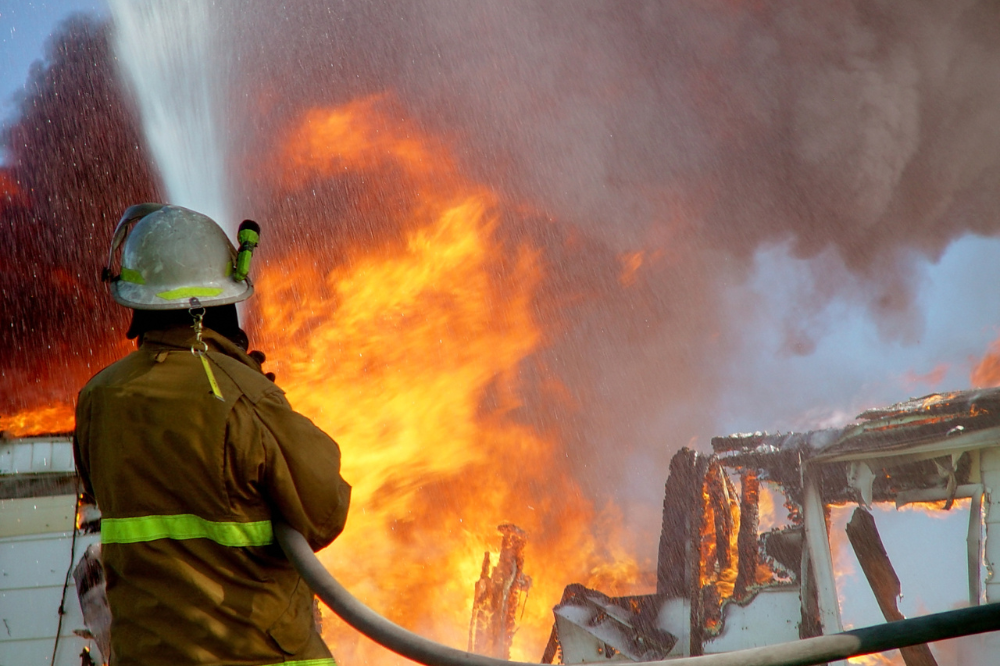
FAQ About Fire Damage
Check out these commonly asked questions about fire damage. If you don’t see the answers here, please call our office and we’ll get you the information you need.
How long does it take to repair a home after a fire?
The timeline for repairing a home after a fire depends on the extent of the damage. Minor repairs might take a few weeks, while major repairs could take months.
What should I do with damaged items?
It’s best to wait until after an insurance adjuster has assessed the damage before disposing of any items. Documenting all damage is critical for your claim.
Related: The most effective ways to remove smoke odors
Can I clean up fire damage myself?
While it may be tempting to start the cleanup process yourself, it’s usually best to leave it to professionals. Fire damage can be hazardous to your health, and improper cleaning can potentially cause more damage.
Facing fire damage can be tough, but remember, you’re not alone. With the right resources and help, you’ll be back on your feet and your home will be restored.
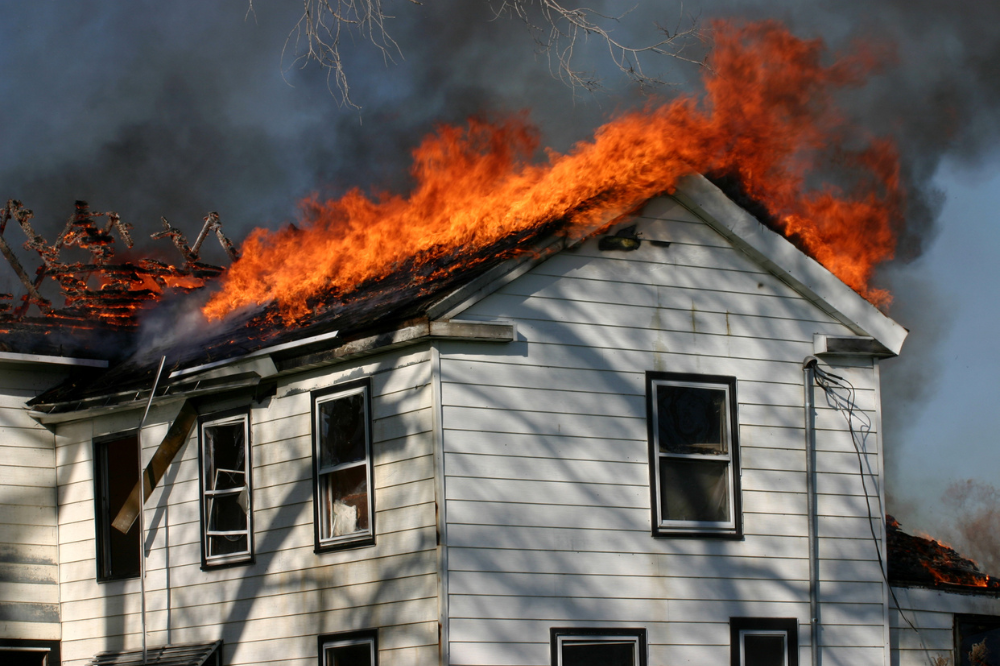
Most Common Causes of House Fires
Understanding what causes house fires can go a long way in preventing them. While some house fires are due to unpredictable circumstances or accidents, many are caused by preventable issues. Here’s a deep dive into some of the most common causes of house fires.
Cooking Equipment
Kitchens are the leading location for home fires and associated injuries. Pots and pans can overheat and cause a fire very quickly if the person cooking gets distracted and leaves cooking unattended. Always stay in the room, or ask someone to watch your food, when you’re cooking.
Related: Common fire myths
Heating Equipment
Portable heaters can quickly become dangerous if they’re too close to flammable materials like curtains, furniture, or bedding. Fireplaces can also pose a hazard if not properly contained, and chimneys should be cleaned regularly to prevent buildup of creosote, a highly flammable residue.
Electrical Appliances
Faulty or old wiring in electrical appliances is a significant cause of home fires. Look out for signs of faulty wiring such as fuses blowing frequently, lights dimming of their own accord, and hot outlets or switches. Overloading outlets and using frayed cords can also lead to electrical fires.
Candles
Candles may be pretty, but they’re still an open flame and they can easily ignite anything nearby. Always keep candles away from books, curtains and anything flammable. Always blow them out before leaving a room.
Related: What to expect during fire damage restoration
Smoking Indoors
Smoking indoors causes numerous fires every year. A cigarette that is not put out properly can cause a flame. If it comes into contact with flammable materials such as furniture, it can burst into flames.
Faulty Wiring
Homes with inadequate wiring can cause fires from electrical hazards. Some signs to see if you’ve bad wiring are: lights dim when you use another appliance; for an appliance to work, you have to disconnect another; fuses blow or trip the circuit frequently.
Barbecues
Barbecues are great for an outdoor meal, but should always be used away from the home, tablecloths or any plants and tree branches. Keep BBQs regularly maintained and cleaned with the fat tray clear of any fat build up. And never leave the cooking unattended.
Flammable Liquids
If you have any flammable liquids in the home or garage such as petrol, kerosene or methylated spirits, keep them away from heat sources and check the label before storing. Be careful when pouring these liquids.
Related: What to expect during the water damage restoration process
Lighting
Lamp shades and light fittings can build up heat if they are very close to light globes. Check around the house to make sure. Lamp bases can become a hazard if they are able to be knocked over easily, and so should be removed if they are. Check that down lights are insulated from wood paneling or ceiling timbers.
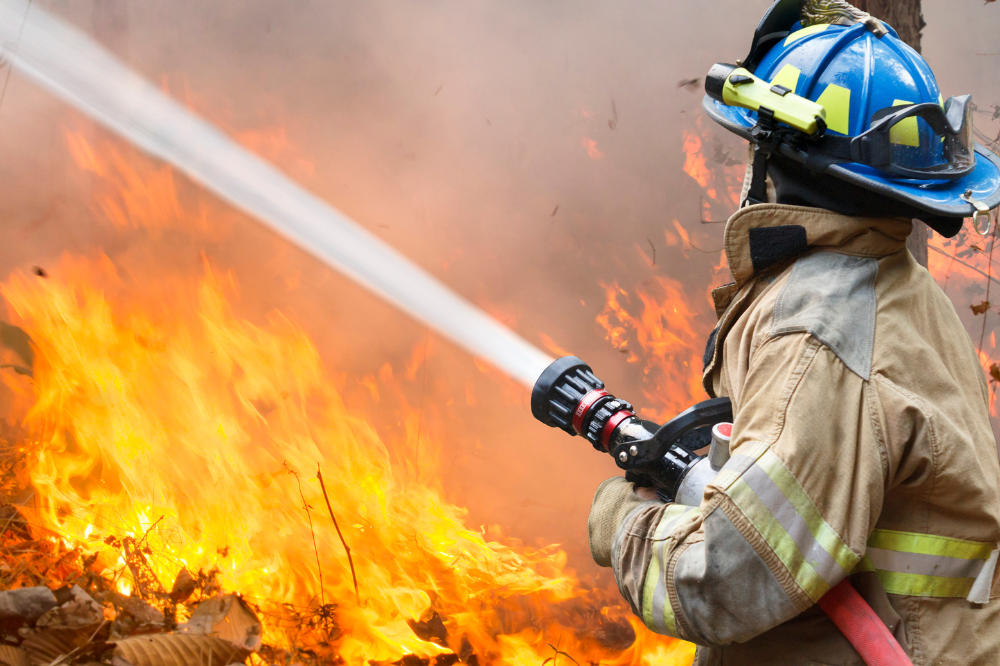
How Fire Damages Homes, Including Water Damage from Firefighting Efforts
House fires can cause an extensive amount of damage, not only from the flames themselves but also from the smoke, soot, and water used to extinguish the fire. Here’s a detailed breakdown of how homes get damaged due to fire, including the water damage they sustain from firefighting efforts.
Flame Damage
The most visible damage to a home after a fire is usually caused by the flames themselves. When a fire breaks out, it consumes anything in its path – wood, insulation, personal belongings, and more. The heat from the flames can cause structural damage to the building’s walls, ceilings, and foundation. In severe cases, the structural integrity of the house may be compromised, making it unsafe for habitation.
Smoke and Soot Damage
Even if flames don’t touch certain areas of your home, smoke and soot can. Smoke, driven by the heat of the fire, can permeate throughout your home, causing discoloration and a strong odor. Soot, the residue left by burned materials, can cover everything in its path, damaging or destroying items.
Related: What happens if you open a window during a house fire?
Smoke can also get into ducts and vents, causing damage to the HVAC system. The residue it leaves behind is acidic and, if not cleaned up promptly, can lead to further damage, such as rusting metals, discoloration of walls and ceilings, and deterioration of electronic devices.
Heat Damage
The extreme heat produced by a house fire can also cause significant damage. Glass can shatter, metal can warp, and plastics can melt. Appliances can become unsafe to use, and electrical wiring can be compromised, increasing the risk of an electrical fire down the line.
Water Damage from Firefighting Efforts
When firefighters respond to a house fire, they use a substantial amount of water to extinguish the flames. While necessary, the water can cause additional damage to the home. Water can soak into the walls, flooring, and furniture, leading to water damage and potential mold growth if not properly addressed.
Water damage from firefighting efforts can lead to swelling and warping of wood, staining of textiles, and damage to electrical systems. If water is left standing, it can also create a favorable environment for mold and mildew to grow, which can lead to further damage and potential health hazards.
Related: 4 things most people don’t know about house fires
Firefighting efforts can also lead to physical damage to the home. In some cases, firefighters may need to break windows or cut holes in the roof or walls to fight the fire or ventilate the space, leading to additional repair needs.
Overall, the damage caused by a house fire can be extensive and varied, affecting not only the structure of the home but also the health and safety of its occupants. Therefore, after a fire, it’s crucial to get a professional assessment and begin the restoration process as soon as possible to prevent further damage and ensure the home is safe to inhabit.
Do You Need a Disaster Remediation Expert in Washtenaw County or Jackson County?
If your home has already been damaged, we can help. Check out our services and call 734-352-9183 for your free disaster remediation quote today. We offer:
- Water damage restoration
- Mold removal and remediation
- Fire and smoke restoration
- Sewer cleanup and disinfecting
- Reconstruction
- Wind and storm damage repair
